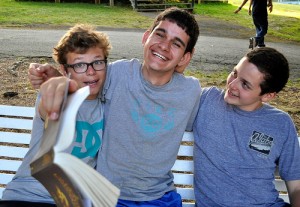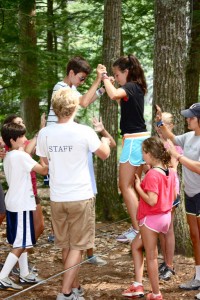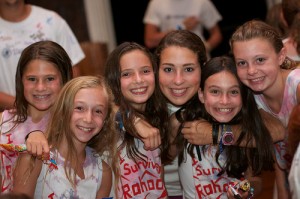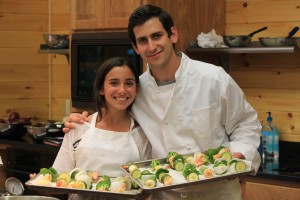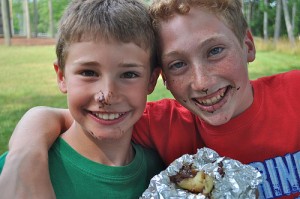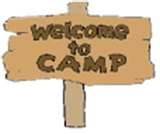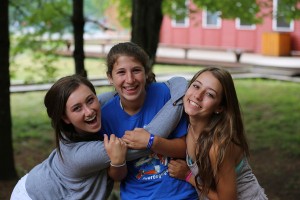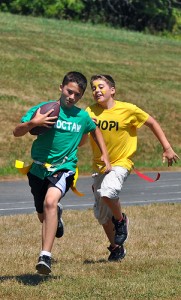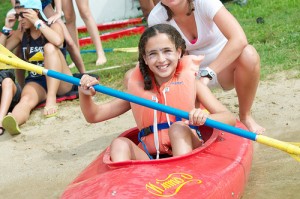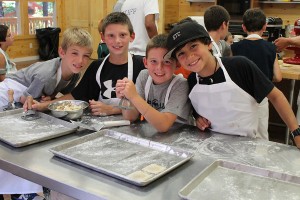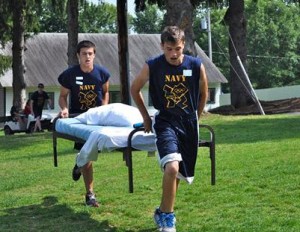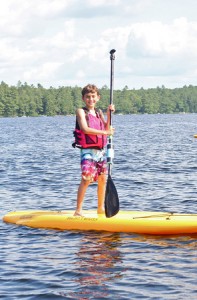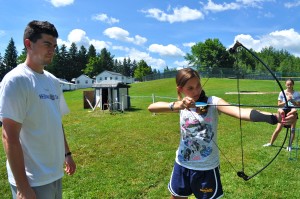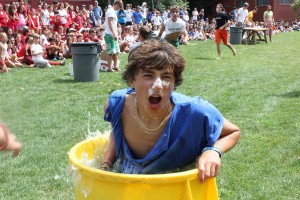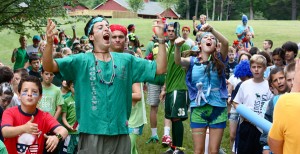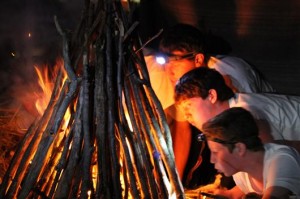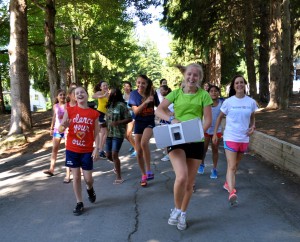 Raise your hand if this sounds familiar…
Raise your hand if this sounds familiar…
Your child comes to you and says, for what seems like the billionth time, “Ask me more about camp.” It’s now December and you’ve heard some of the stories so many times that you can actually recite them along with her. You wonder what odd but amusing little story your little one has managed to scour from the back of her mind that somehow involves the solitary five minutes of summer camp about which you haven’t yet heard. While you’re doing this, your child only grows more impatient, “Go ahead. Ask me,” this time becoming so excited that she hops up and down a couple of times and appears to be choreographing her own little “ask me more about camp” dance, which somewhat tops the bemusement of the time she sang for you to ask.
You can’t resist her enthusiasm because you think it’s great to see her this excited about anything other than the latest episode of iCarly, so you cave and wait for her mile-a-minute relay of  some cute story about that time she held hands with six friends and they all jumped off the water trampoline and made a really big splash, which was really funny because it made so many waves that it almost tipped over a paddleboarder nearby…No, really it was SO funny! Or the time they went on the nature walk, and it started raining, and they were trying to hurry back to camp, but they slipped in the mud…THAT was the funniest! You’re still trying to get the stains out of the shirt she was wearing that day, but you get an image in your head, having seen the photographs of your child and her friends covered in mud the camp posted on its website, and knew from the ear-to-ear grin that she was obviously having the time of her life, and you have to chuckle because, yes, it’s funny.
some cute story about that time she held hands with six friends and they all jumped off the water trampoline and made a really big splash, which was really funny because it made so many waves that it almost tipped over a paddleboarder nearby…No, really it was SO funny! Or the time they went on the nature walk, and it started raining, and they were trying to hurry back to camp, but they slipped in the mud…THAT was the funniest! You’re still trying to get the stains out of the shirt she was wearing that day, but you get an image in your head, having seen the photographs of your child and her friends covered in mud the camp posted on its website, and knew from the ear-to-ear grin that she was obviously having the time of her life, and you have to chuckle because, yes, it’s funny.
 Your child starts a new story about a soccer game and how her friend had really wanted to score a goal all summer at camp but really wasn’t that good at soccer, so she blocked another player so the friend could try to score. And you realize that even though you might get asked to quiz her about camp a few hundred more times before the line turns into “I can’t wait to go back!” you don’t mind because you realize that hearing about little moments like this is nice. Not only did your child just have the time of her life, her enthusiasm in sharing her experiences with you adds great value to your decision to send her to camp because not only is she having fun but she’s learning valuable life lessons.
Your child starts a new story about a soccer game and how her friend had really wanted to score a goal all summer at camp but really wasn’t that good at soccer, so she blocked another player so the friend could try to score. And you realize that even though you might get asked to quiz her about camp a few hundred more times before the line turns into “I can’t wait to go back!” you don’t mind because you realize that hearing about little moments like this is nice. Not only did your child just have the time of her life, her enthusiasm in sharing her experiences with you adds great value to your decision to send her to camp because not only is she having fun but she’s learning valuable life lessons.

 570-798-9831
570-798-9831
